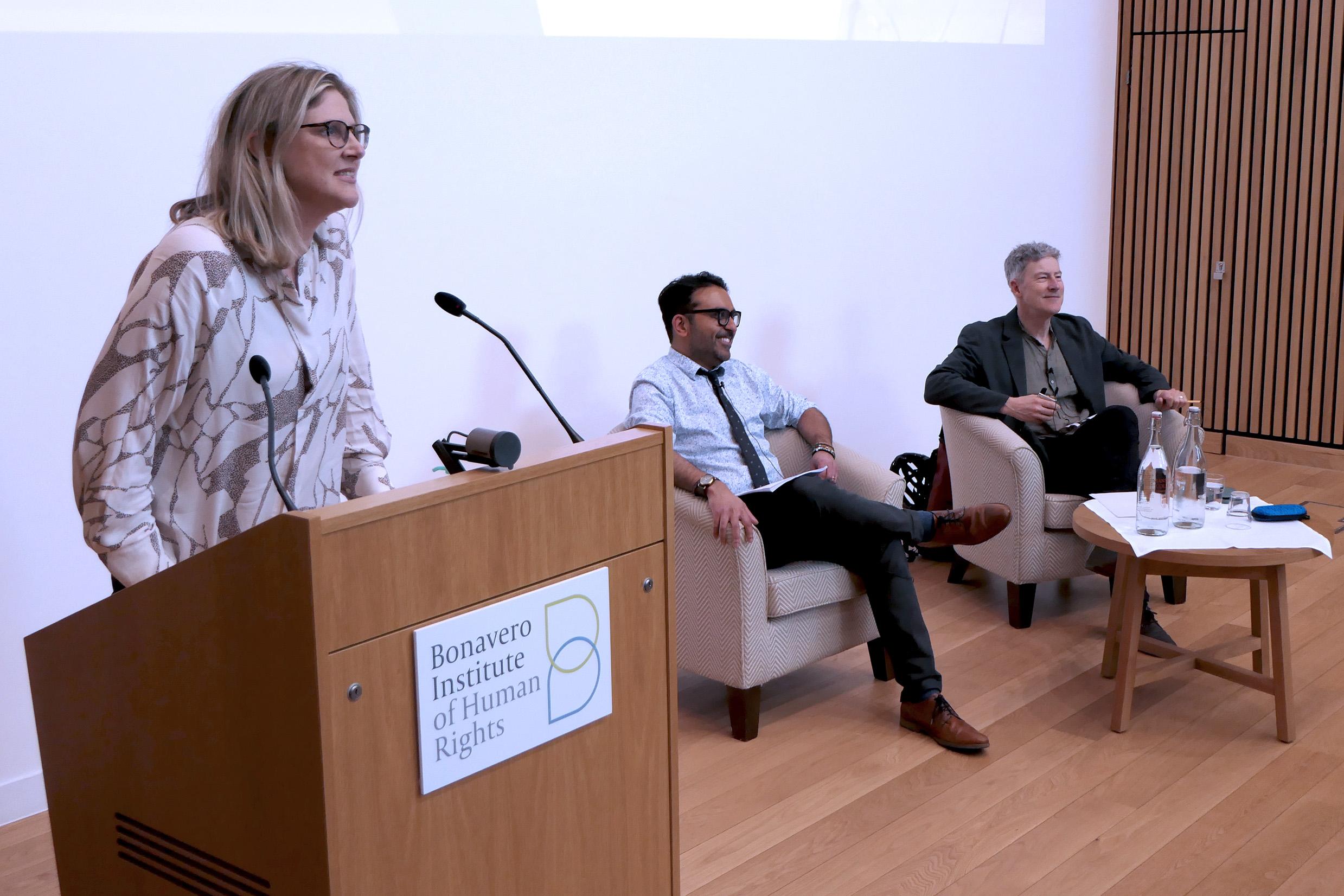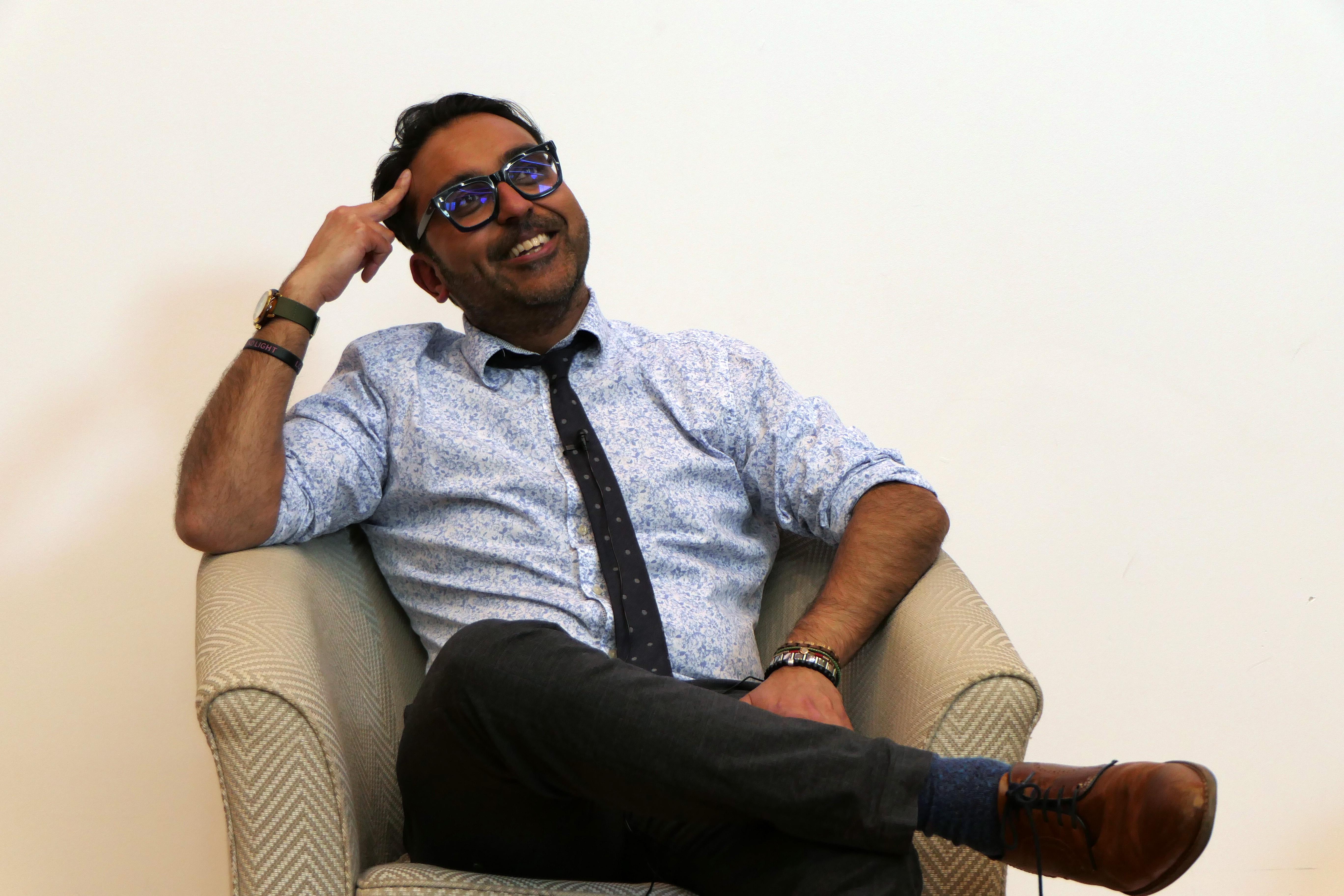Humanising the Harms of Hate: Professor Neil Chakraborti delivers the 2023 Equality and Diversity Lecture
Associated people

Bringing more than two decades of experience in the field of hate crime, Professor Neil Chakraborti’s lecture on the 2 May seamlessly combined the personal and the political to present a compelling case for renewed attention to discrimination and its profound and enduring harms. Supported by Blackstone Chambers and chaired by Professor of Criminology Ian Loader, the Faculty of Law’s fifth annual Equality and Diversity Lecture centred the voices of those most affected by hate and emphasised the connection between these lived experience narratives and the normalisation of political rhetoric which scapegoats difference and promotes divisiveness. As Director of the University of Leicester’s Centre for Hate Studies, Professor Chakraborti’s ground-breaking empirical research foregrounds the unfiltered stories of victims of hate crime and urges us to challenge the climate of systemic indifference that obstructs efforts to build genuinely inclusive spaces.
Exploring the cumulative effects of ‘everyday hate’ that shape the lives of minority communities, the lecture illuminated how sensationalised events such as attacks on places of worship or Black Lives Matter counter-protests are merely the tip of an iceberg, representative of entrenched practices of othering and hostility to which certain groups are subject on a daily basis. This recurring cycle is a ‘damaging lived reality for hundreds of thousands of people who experience vitriol day in day out, on the basis of their identity or their perceived identify.’ In the wake of a 63 percent rise in hate crime over the past five years, Professor Chakraborti also emphasises the growing ‘justice gap’ between victims’ experiences of hate, and the decrease in prosecutions and CPS referrals over the same time period. The proportion of cases which are abandoned is now three times higher than in 2015, while the current government has introduced none of the recommended reforms to hate crime laws arising from the Law Commission’s recent report.
This political climate of dismissiveness and trivialisation has a corrosive impact upon victims, who contend with the visceral effects of long-term stress arising from hate crime, in addition to more immediate bodily injuries. Hate crimes exist along a continuum and can only be properly understood in context, with routine experiences of microaggressions and micro-crimes being inherently connected to serious physical incidents and intergenerational trauma. Though race-based discrimination remains the most prominent target for hate crimes in the UK, there exist sharp increases in the number of victims targeted on the basis of disability, religion, gender identity and sexuality. As well as experiencing repeat victimisation and hence considering hate crimes as an inevitability, Professor Chakraborti emphasised that most victims are subject to intersectional oppression, being targeted on the basis of multiple identity characteristics.

Amidst the seeming invisibility of hate and the mainstreaming of fear-based political discourse, Professor Chakraborti’s research remains firmly justice-oriented, seeking to dismantle the prejudices on which hate crimes are premised through programmes of education and community integration. Recognising that victims of hate crime are liable to isolate themselves as a protective response which compounds their lack of connection and corrodes mental health and emotional wellbeing, it is crucial that frontline practitioners receive the specialist training to respond with empathy and care to victims’ reports, and to reassure them that ostensibly ‘everyday’ incidents will be treated seriously. By attending to victims’ voices, ‘justice’ becomes a pluralistic, kaleidoscopic concept that evolves alongside lived experience and is premised on dignity, prevention, and connectedness, rather than simply a concrete progression through formal reporting mechanisms. Perhaps most significantly, the 2023 Equality and Diversity lecture emphasised the power of sharing personal stories to generate a community of experiences and to challenge indifference, united by the common project of inclusion and dignity for all.
Generously supported by:

This article was written by Chelsea Wallis (DPhil Candidate in Law).




